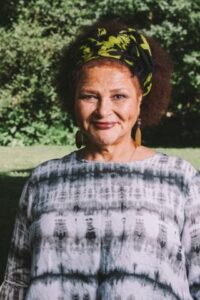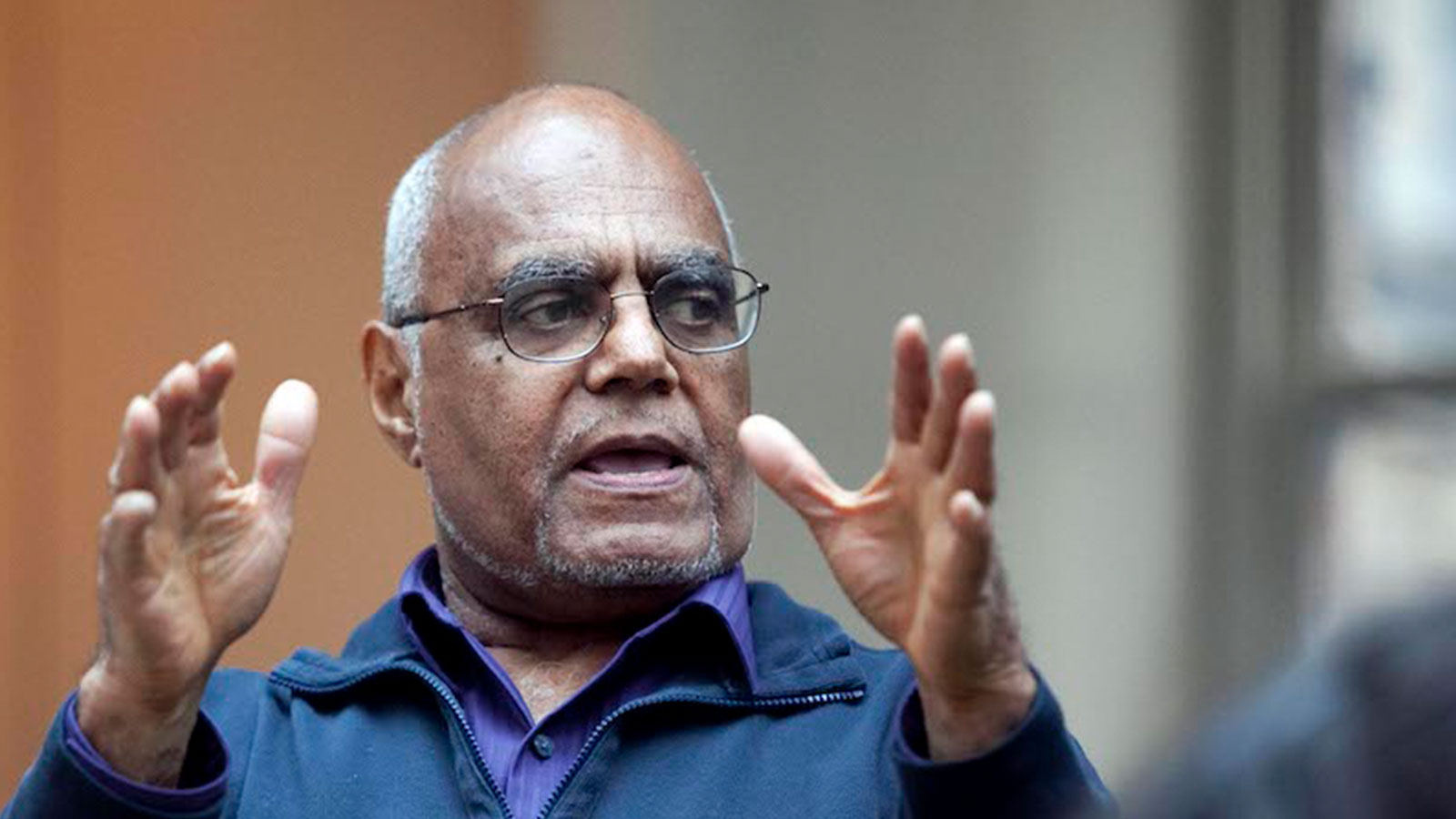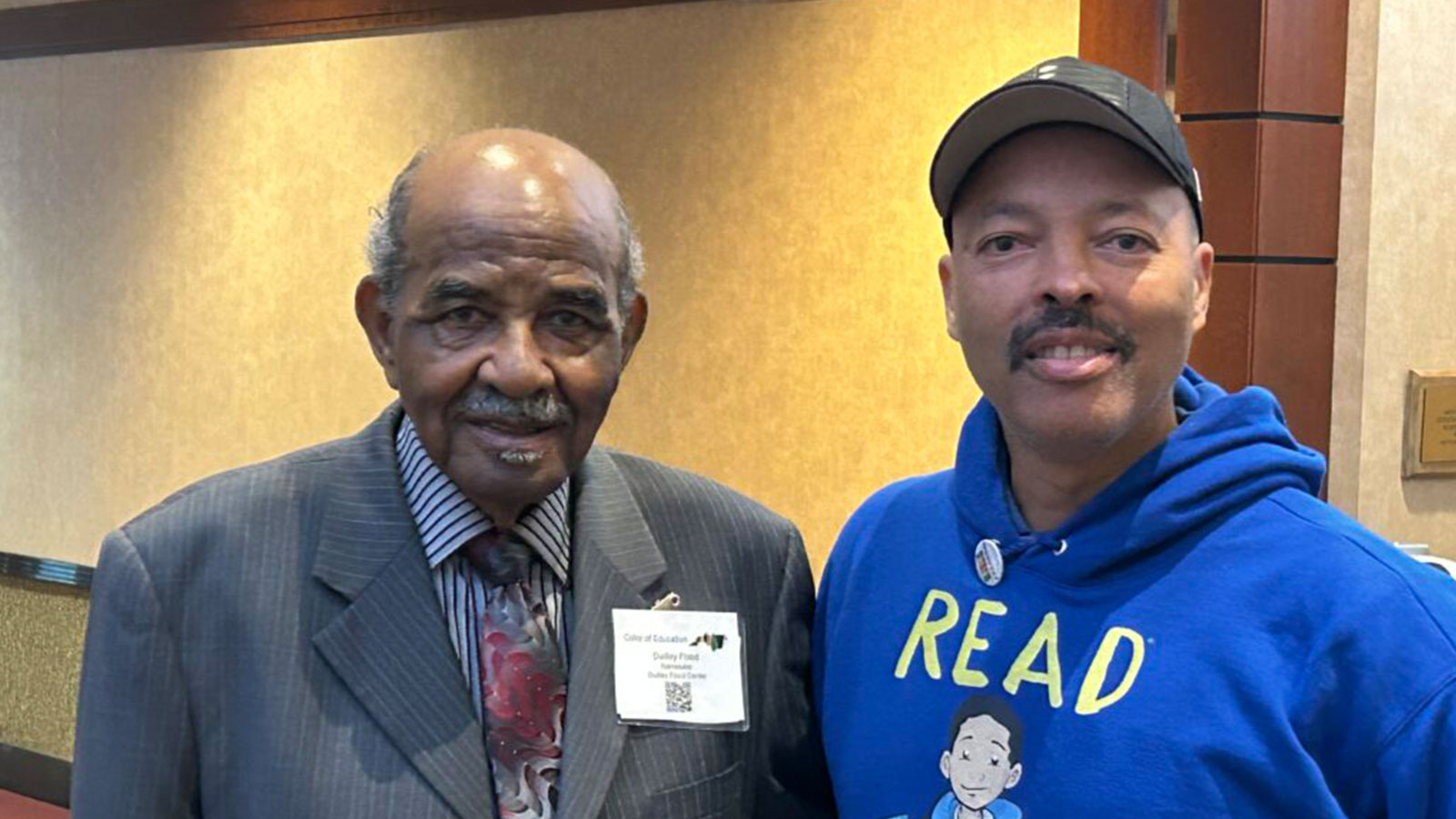Subversive ‘fugitive pedagogy’ must be revived in education system not designed for Black students.
By Greg Childress, NC Newsline —
America’s educators must not cower before lawmakers attempting to restrict what they teach students about America’s racial history, author and education reformer Lisa Delpit told hundreds of teachers attending the annual Color of Education summit in Raleigh on Saturday.
Delpit, the author of the groundbreaking book, “Multiplication Is for White People” said teachers must engage in the kind of “fugitive pedagogy” that educators used during the Jim Crow era to get around mandated curricula that hid the truth about America’s racist past and the enormous contributions Black people have made to the nation.
Coined by scholar Jarvis Givens, “fugitive pedagogy” refers to the subversive strategies Black educators used to teach students the skills to think and to survive despite a system of education that was designed to only prepare them for manual labor, Delpit said.

Lisa Delpit
“Those of us who can, should push the boundaries and build an underground railroad of education and save those children who are being sacrificed by the larger system, not through direct violence [as in the past], but by the insidiousness of neglecting the elements that we know give them life,” Delpit said.
Delpit noted that more that 600 Black schools were burned in the south during Reconstruction to prevent Black people from getting an education.
Civil rights icon Bob Moses referred to the education afforded Black people as a “sharecropper education system” maintained by a white power structure to keep [Black people] in their place, Delpit said.
“Successful teachers had to go underground in their instruction to provide Black children what they needed to survive and still keep their teaching jobs,” Delpit said.
Moses was an organizer for the Student Nonviolent Coordinating Committee (SNCC) and led voter registration drives in Mississippi during the 1960s. He founded The Algebra Project in 1982 to help students from historically marginalized communities develop math literacy. He died in 2021.
“He was a true practitioner of fugitive pedagogy, the pedagogy that works for educational excellence even when confined within a system that consistently maintains the status quo for Black student failure,” Delpit said.

The Late Bob Moses
Educators must follow Moses’ example and that of others who practice fugitive pedagogy, Delpit said, to do “what needs to be done, often in a setting that does not support the effort to educate marginalized children, and hopefully with enough finesse to stay employed.”
Delpit’s visit to North Carolina comes as school districts struggle to implement policies to comply with the state’s new Parents’ Bill of Rights law, which enumerates the right to “inspect and review” all textbooks and supplementary instructional material used in their child’s classroom. Complaints about the law have largely centered on requirements for educators to alert parents if their child changes their name or pronoun at school and a provision that restricts instruction about gender identity and sexuality in K-4 classrooms. Critics of the law believe it could have a chilling effect by forcing teachers to select books and materials less likely to draw parental attention.
“Despite current guidelines that are happening all across the country, it’s really important for Black students to know about Black history, literature, art, music, the historical brilliance of Africa, the world’s first libraries and universities, the Civil Rights Movement and the special place young people had within it,” Delpit said.
Today, Delpit said, required curricula ignore research which shows Black children learn better when they are physically and emotionally engaged with the material they’re learning, allowed to express their creativity and when teachers develop personal relationships with them and challenge them to learn difficult subject matter.
“We know what is necessary and it hasn’t been done,” Delpit said. “Consequently, our children are bored and unhappy in school and their learning is blunted and we blame the victim.”
Black students are called unmotivated and slow learners due to a system of education that has failed them.
“In other words, while the racists of yesteryear prevented Black students by burning their schools, ‘miseducation,’ in the words of Carter G. Woodson, is now being accomplished by the schooling enterprise itself, with the added benefit that that the students are blamed for their own victimization,” Delpit said.
Woodson was an American historian, author and journalist who is best known for his 1933 book “Miseducation of the Negro,” in which he asserts that Black people of his day were culturally indoctrinated in American schools rather than taught. He is also considered the father of Black History Month.
Delpit was one of two keynote speakers at the Color of Education event, which the organizers boasted reached pre-pandemic attendance levels with more than 800 registrants.

Dr. Dudley Flood (Left) and Jerry Craft (Right) Photo: Greg Childress
The other keynote speaker was bestselling children’s author Jerry Craft who kicked off the event with stories about growing up as a non-reader.
The author of the popular graphic novel “New Kid,” which won the prestigious Newberry Medal in 2020, also discussed how his coming-of-age novel about the experiences of Jordan Banks, a Black student growing up in New York’s Washington Heights neighborhood who transfers to a predominately white private school, has been the subject of attempted book bans after school districts received complaints that it contains elements of critical race theory.
The first complaint surfaced in Katy, Texas, in 2021. The book was pulled from library shelves after a parent complained it contained harmful content. A committee found no inappropriate content and reinstated “New Kid” after a 10-day review.
“So it’s okay for me to live that life, it’s just not okay to write about it,” Craft said.
Craft told teachers that it’s important to encourage students to read books that are culturally relevant. He preferred comic books as a student but his teachers took them away.
“What my teachers did, is they took away what I wanted to read and they replaced them with books that had nothing to do with me, books written 50 to 100 years before I was born, about places I never wanted to go and people I never wanted to meet,” Craft said.
NC Newsline interviewed Craft last week in advance of the Color of Education summit. Click here to read the story.
Color of Education is a partnership between the Dudley Flood Center for Educational Equity and Opportunity, the Public School Forum of North Carolina, the Samuel DuBois Cook Center on Social Equity at Duke University, and the Center for Child and Family Policy. It brings educators, policymakers, researchers, students, parents, community members, and other interested people together to focus on achieving racial equity and eliminating racial disparities in education.
Dudley Flood, an educator who championed school integration in North Carolina, said the state is at a fork in the road when it comes to educating its children. The Flood Center is named in his honor.
“On one side of that fork are people who are working very hard like you to ensure that every child has access to an education,” Flood said. “On the other side of that fork, there are people who are working much harder than you at ensuring that education is limited, that only a few people will profit from it.”
The state’s Republican-led General Assembly recently approved legislation to make the state’s so-called “Opportunity Scholarship” school voucher program available to all families regardless of income. The program was created a decade ago for the stated purpose of helping low-income families in failing districts or schools pay private school tuition.
Flood, however, questioned the value of the program. “If you have a situation in which were going to give from the taxpayers money $5,000 to go to school and it costs $25,000 to go school, I don’t see how that enhances the probability of most of the children I know getting that kind of education,” Flood said.
Source: NC Newsline














